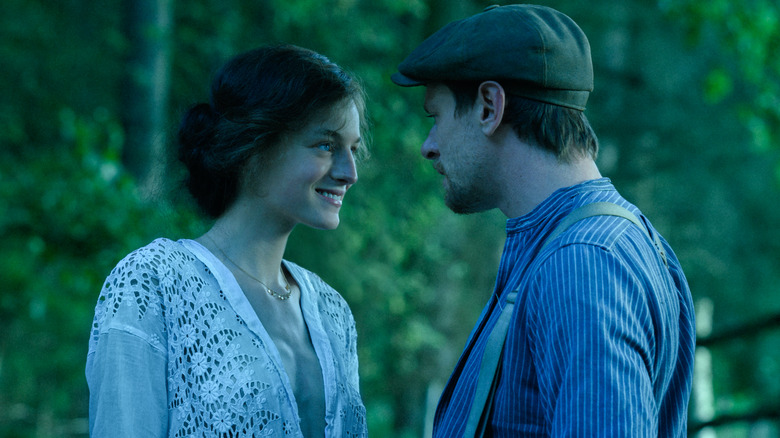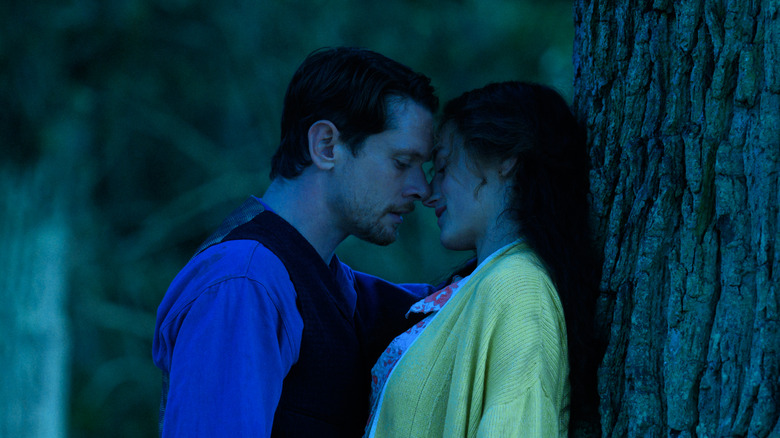The Steamy Drama Based On A Banned Book You Can Watch On Netflix
"Lady Chatterley's Lover" is a novel whose reputation precedes it. Penned by D.H. Lawrence and first published in 1928, it follows the illicit relationship between the aristocratic Lady Chatterley and her husband's gamekeeper, Oliver Mellors. For its frank depictions of sexuality, female pleasure, and uncouth language, the book was banned in the United States, Canada, Australia, India, Japan, and Lawrence's native England. Before the author died in 1930, the book only received private printings in Italy and France. In 1932, a heavily censored edition was published in England and the U.S.
After decades spent under lock and key, the uncensored version of "Lady Chatterley's Lover" was published in the U.S. in 1959 and the U.K. in 1960, following the lifting of the countries' obscenity laws. In the decades since the controversial book became available to audiences, there have been several adaptations, including a 1993 miniseries starring Joely Richardson and Sean Bean.
For director Laure de Clermont-Tonnerre, who helmed the 2022 Netflix adaptation of "Lady Chatterley's Lover," Lawrence's book is just as salient today. "His statement is still so vivid," she told W Magazine. "We are going through times today with Roe vs. Wade, the revolution in Iran, where the body of the woman is the subject of political tensions. That, for me, was what I really wanted to express with this version."
Lady Chatterley's Lover is a liberating erotic tale
In today's climate of relative cinematic sexlessness that The Guardian decried as "the end of erotica," "Lady Chatterley's Lover" is a rebuke to neutered on-screen relationships. After all, a sexless adaptation would be a disservice to D.H. Lawrence's memory. For Laure de Clermont-Tonnerre, it was important to stay faithful to the material in that regard. "I thought [the sex] was very faithful to Lawrence because this is what he always wanted to bring," she said in the same W Magazine interview. "I felt I needed to bring this as well, but as a revitalization of a human being, as something that heals."
That intention comes through in the film, which is certainly one of Netflix's steamier offerings. Indeed, the movie is replete with love scenes between Connie (Emma Corrin) and Oliver (Jack O'Connell), usually in the misty fens of the English countryside. But that eroticism — positioned by de Clermont-Tonnerre as a liberating force — also exists in other scenes. In one memorable sequence, Connie and Oliver run through the rain naked. It is as titillating as it is a rejection of their staid stations in life, upheld by the stringent limitations of the English class system.
"Sex is an assertion of that freedom," wrote A.O. Scott in his New York Times review of "Lady Chatterley's Lover." "But the key that unlocks their cages isn't so much sex as the refusal of shame."

